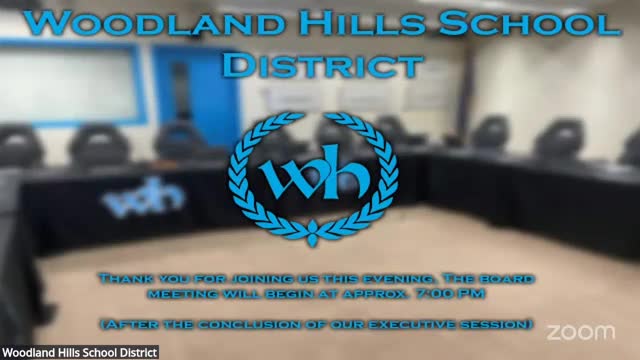Woodland Hills reviews 'Assessment for Good' pilot; district would receive funding for participation
Get AI-powered insights, summaries, and transcripts
Subscribe
Summary
Assessment for Good presented a pilot formative-assessment program to the board and sought permission to partner at Dixon Preparatory STEAM Academy. The firm said the district would receive funding for participation and that the tools emphasize student assets, quick formative games and co-design with students.
Assessment for Good, a research and development program that builds asset-based formative assessments, presented to the Woodland Hills School District board on Feb. 12 and asked permission to pilot tools at Dixon Preparatory STEAM Academy.
Why it matters: The pilot would give the district early access to new assessment tools designed to measure student engagement, executive function and belonging and would provide funding for district participation while the tools are co-designed with students.
Ira Rigo, who described his role as partnership lead for Assessment for Good, told the board the company builds short, gamified assessments intended to surface students’ strengths and to be implemented quickly by teachers. "These are almost games, like gamified spaces that students can engage in in 5 minutes or less," Rigo said during the presentation.
Rigo said Assessment for Good funds district participation and pays participants in design sessions. He described a two-part engagement model: small-group user testing and larger, class- or grade-level administrations that gather quantitative data for iterative design. "We fund these partnerships so that schools receive funding for their participation in helping to build these tools as well as early access to these tools," Rigo said.
Superintendent Eddie Wilson summarized the district benefit during later discussion: the district would receive roughly $45,000 for participation in the current school-year contract and the program is opt-in for students, he said. Wilson also noted the pilot year is intended to be followed by additional pilot and design work into the next school year if both parties agree.
Board discussion focused on implementation logistics: rostering and limited onboarding time (Rigo said onboarding has taken districts about two weeks), data sharing needs, and the district’s focus on middle grades, where Rigo said the tools have the most immediate research interest.
Status: At the agenda setting meeting administrators sought board permission to partner and to host the pilot at Dixon. The transcript records the request for permission but does not show a formal board vote during the Feb. 12 meeting.
